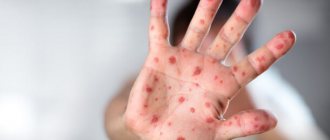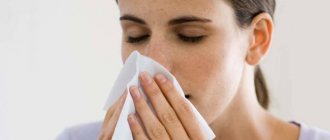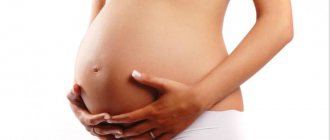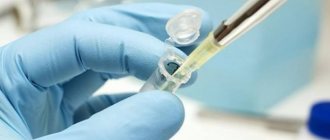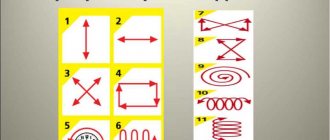In the context of a new powerful outbreak of Covid, more and more Russian regions are introducing mandatory vaccination against coronavirus for certain groups of citizens (primarily those who, due to their occupation, are actively in contact with others and can intensively spread the infection). However, as with any medical product, there are contraindications for vaccinations against COVID-19. Their list is determined by the instructions for each vaccine. Over time, it may change and be updated by developers with subsequent official registration of “edits.” In addition, methodological recommendations from the Ministry of Health have been developed on the procedure for vaccination with one or another drug. They also contain important points about when vaccination is not done (in addition to direct medical contraindications).
Komsomolskaya Pravda has collected and provides data that is relevant today.
“SPUTNIK V”: WHO SHOULD DELAY WITH THE VACCINATION
Contraindications are:
- hypersensitivity to any component of the Sputnik V vaccine or another vaccine containing similar components (this is determined by the doctor in the vaccination room when examining and interviewing the patient before vaccination);
- history of severe allergic reactions (these include: Quincke's edema, anaphylactic shock);
- acute infectious and non-infectious diseases - vaccination is carried out 2-4 weeks after recovery. For mild ARVI and acute infectious diseases of the gastrointestinal tract, vaccination can be done after the temperature has normalized;
- exacerbation of chronic diseases - vaccination is carried out 2-4 weeks after the onset of remission;
- pregnancy and breastfeeding. Important: as the head of the Sputnik V development team, academician Alexander Gunzburg, said, in the very near future it is planned to make additions to the instructions allowing vaccination of pregnant women;
- age up to 18 years. Note: according to Moscow Deputy Mayor for Social Development Anastasia Rakova, clinical trials of Sputnik V for adolescents 12-17 years old will start in the capital from the beginning of July.
! There are also certain contraindications for administering the second component of the vaccine. The patient is given a medical exemption from the second Sputnik injection if severe post-vaccination complications occur after the first injection. These include:
- anaphylactic shock,
- severe generalized allergic reactions,
- convulsive syndrome, temperature above 40°C, etc.
If, after the first injection, antibodies have not formed, and the second component of Sputnik is contraindicated, the doctor may decide to carry out a full course of vaccination with another vaccine - EpiVacCorona or CoviVac, the deputy director for clinical and analytical work of the Central Research Institute of Epidemiology told KP Rospotrebnadzor, Doctor of Medical Sciences, Professor Natalya Pshenichnaya. “Re-vaccination with another drug is possible no earlier than 3 months after the administration of a dose of the previous vaccine to which an allergic reaction occurred,” the expert clarified.
Contraindications to vaccination
The content of the article:
- List of vaccines and their main differences
- Preparing for vaccination
- Contraindications to vaccination
- Common questions regarding Covid vaccination
List of vaccines and their main differences
In the current Covid 19 pandemic, it has become clear to everyone that the only way to protect against the spread of the virus is through mass vaccinations.
Several types of vaccines with different mechanisms of action have been developed in Russia. In the article we will look at what contraindications there are for vaccination against coronavirus in adults, but first we will look at how the vaccines produced differ.
The Covid 19 vaccines developed in Russia do not contain a live virus or at least fragments of a live virus. All of them can be divided into three types:
- vector - based on another virus that is not dangerous to humans;
- peptide - the purified protein part of the coronavirus is used;
- whole virion - a part of the inactivated (killed) virus is taken.
Each has its own characteristics and mechanism of action.
A combined vector vaccine that received a registration certificate in August 2021.
Gum-COVID-Vac is a two-stage vaccine. After the first vaccination, an immune response is developed, and after the second, which must be done 3 weeks later, the effect is consolidated. An important question that interests those getting vaccinated is whether the vaccine contains a live or dead covid virus. The answer is no. A slightly different mechanism is at work here, and the answer lies in the name itself: vector vaccine. The basis is an ordinary adenovirus from which the “harmful” part of it, which is responsible for a cold in humans, is removed. All that remains is the part that helps this virus penetrate human cells. Additionally, the genetic code of the coronavirus infection protein is inserted into this modified virus. Human cells detect the viral protein, the immune system reacts and remembers how to act. When the body encounters a real coronavirus, it already knows how to suppress it.
Two-phase vaccination allows you to form long-term immunity up to 2 years.
"EpiVacCorona"
EpiVacCorona is a vaccine based on artificially synthesized short peptides that mimic small sections of virus antigens, which received a registration certificate in October 2021. The composition includes: a carrier protein - a fragment of the protein surrounding the coronavirus RNA, artificially synthesized coronavirus proteins, and an adjuvant - aluminum hydroxide. An adjuvant is a substance that helps boost the immune response. The vaccine is also administered twice with an interval of 3 weeks.
"CoviVac"
“CoviVac” is an inactivated whole-virion purified coronavirus vaccine, registered in February 2021. Unlike other vaccines, this one contains the full virus, not just a part, but it is deactivated. The composition also contains an adjuvant - aluminum hydroxide and a buffer solution.
2 weeks after the first vaccination, the second component is introduced.
Preparing for vaccination
No special preparation is required before vaccination. There is no need to take a test for Covid-19 antibodies (IgG and IgM markers).
The doctor may order an oropharyngeal swab if there is any symptom of coronavirus or if the patient may have been in contact with a carrier of the virus within the last 2 weeks.
Vaccination can be performed on all adult patients unless they have obvious contraindications to it. The following groups of people have priority:
- people over 60 years of age;
- workers who come into contact with a large number of people.
- people with chronic non-communicable diseases.
Contraindications to vaccination
According to the letter of the Russian Ministry of Health dated June 29, 2021 N 30-4/I/2-9825, each vaccine contains an approved list of contraindications.
All contraindications are divided into absolute and relative, under which vaccination can be done, but with caution.
You cannot be vaccinated with Gam-COVID-Vac if you have at least one of the following conditions:
- hypersensitivity to any component of the vaccine;
- an infectious disease in the acute stage, vaccination can only be done after complete recovery, not earlier than in a month;
- pathological reactions of the immune system to any drugs;
- exacerbation of any chronic disease. It is possible to get vaccinated only if the state of remission lasts more than 3-4 weeks;
- gestation period and lactation;
- children and adolescents up to 18 years of age.
There are cases when, after the first injection, the patient experiences undesirable post-vaccination consequences. Various types of complications include:
- immediate allergic reaction (anaphylactic shock);
- Quincke's edema;
- convulsions, fever with high temperature.
If an allergic reaction occurs after vaccination, then repeated administration of the injection, but with a different drug, is permitted no earlier than after 3 months.
A number of pathologies mean that you need to get vaccinated with caution, weighing all the risks and consulting with your doctor.
- renal disorders;
- thyroid diseases;
- liver diseases;
- CNS disorders;
- epilepsy;
- diseases of the heart and blood vessels;
- diseases of the hematopoietic system.
Patients suffering from cancer or having autoimmune diseases should, together with their doctors, evaluate the risks and benefits of vaccination. With these diseases, the necessary immune response may not develop, while the patient’s general condition is in danger of deteriorating.
Contraindications to EpiVacCorona vaccination, both absolute and relative, are the same as for Gam-COVID-Vac.
Contraindications to CoviVac vaccination:
- acute reaction of the body to any vaccinations. If previously administered vaccinations led to any complications, then vaccination with a deactivated virus is the basis for medical withdrawal;
- high sensitivity to vaccine components;
- severe allergic reaction of the body;
- period of gestation and lactation;
- children and adolescents up to 18 years of age.
Relative contraindications for vaccination against coronavirus, list:
- viral respiratory diseases in the acute stage;
- exacerbation of any chronic diseases;
- renal disorders;
- endocrine disorders;
- CNS disorders;
- diseases of the heart and blood vessels;
- diseases of the bronchi and lungs;
- gastrointestinal diseases.
People taking immunosuppressive drugs are not recommended to get vaccinated because they will not develop a sufficient immune response.
Common questions regarding Covid vaccination
1. Is it necessary to get vaccinated against Covid every year?
Vaccination against Covid is already included in the list of vaccinations according to the calendar. If there is a medical exemption from coronavirus vaccination, then you need to wait for a complete recovery. 2. If a high temperature rises after vaccination, what should you do?
After the injection, slight pain at the injection site is considered normal, as well as an increase in temperature for 1-2 days, weakness, and chills. Individual body reactions are possible. For any conditions that cause concern, you should immediately consult a doctor. 3. Is self-isolation necessary after vaccination?
No, it is not required; as soon as the fever and weakness have passed, you can lead a normal life. 4. Does the vaccinated person need to wear a mask?
The mask regime must continue to be observed, as well as the rule of social distance.
Whether to get vaccinated against coronavirus or not is a question that everyone decides for themselves. However, you need to be aware of all possible contraindications and consequences in order to avoid unwanted side effects.
Interesting on the topic: Temperature after vaccination against Coronavirus
“POSSIBLE, BUT WITH CAUTION”
For a number of severe chronic diseases, Sputnik V, as stated in the instructions, “is used with caution.” This means that in the vaccination office, in case of doubt, the patient can be referred for a preliminary consultation with a specialized attending physician (urologist, endocrinologist, neurologist, etc.). Let us clarify once again: these diseases themselves are not an “automatic” contraindication to vaccination. A medical exemption is given if the condition of a particular patient is unstable, and doctors believe that vaccination should be abstained at the moment.
Vaccination with Sputnik is carried out with caution for the following diseases:
- chronic liver and kidney diseases,
— endocrine diseases: severe dysfunction of the thyroid gland and diabetes mellitus in the stage of decompensation,
- severe diseases of the hematopoietic system,
- epilepsy and other diseases of the central nervous system (CNS),
- acute coronary syndrome, acute cerebrovascular accident,
- myocarditis, endocarditis, pericarditis (that is, inflammatory processes in the tissues of the heart).
False and true contraindications
In addition to the objective reasons listed above for complete or temporary refusal of vaccination, frankly subjective reasons are often given that cannot be considered grounds from a medical point of view. They are usually caused by prejudice against vaccination in general or about a particular child. From medical practice, we can derive a list of typical “reasons” that are usually cited by those who do not want to vaccinate themselves or their child:
- prematurity;
- anemia;
- mild illnesses without fever;
- dysbacteriosis;
- stable neuralgia;
- congenital defects, for example, allergies in relatives;
- complications after vaccination in other family members.
We have given only the main “excuses”; in real practice there are many more of them. In principle, some of them can be taken into account, and the doctor can postpone the vaccination, but each case must be considered separately. I would like to remind you once again that mandatory vaccines protect your child from very serious diseases, and your indecisiveness or “principles” can ruin his life.
In conclusion, we summarize: true contraindications to the administration of vaccines can only be those indicated in official documents and instructions for vaccines - only they can and should be guided by a doctor.
“ASSESS THE BENEFITS AND RISKS RATIO”
For some diseases, vaccination may pose a risk, according to the instructions for Sputnik V. However, coronavirus can often cause even greater harm to such patients. Therefore, “the decision to vaccinate should be based on an assessment of the balance of benefit and risk in each specific situation,” the document notes. This careful assessment should be carried out before deciding to vaccinate for:
— cancer patients;
- patients with autoimmune diseases.
In the latter case, stimulation of the immune system can lead to an exacerbation of the disease, the instructions emphasize. Great care should be taken in patients “with autoimmune pathology that tends to develop severe and life-threatening conditions.”
And one more important point. Patients who receive immunosuppressive therapy, that is, suppress the immune system (cancer patients, people who have undergone organ transplants, with autoimmune diseases, etc.), may not develop a sufficient immune response, the authors of the instructions warn. Therefore, taking drugs that suppress the function of the immune system is contraindicated for at least one month before and after vaccination. Only the attending physician can make a decision about adjusting medication intake.
STAY IN TOUCH
If you have already been ill or had contact with sick people before vaccination
If a person who came for vaccination had contact with patients with Covid over the last 14 days or showed any symptoms of infection during this period, then the patient should be given a referral for a PCR test for COVID-19 or a rapid test for the presence of coronavirus SARS-CoV-2. This rule is contained in paragraph 6.2 of the Methodological Recommendations “Procedure for vaccination with the GAM-COVID-VAC vaccine against COVID-19 in the adult population.”
Based on the same point, persons who have recovered from Covid and have a positive antibody test result “are not vaccinated.” Note: based on the latest data, taking into account the spread of a new dangerous strain of coronavirus, doctors urge those who have recovered to get vaccinated 7-9 months after the disease. However, if you maintain a sufficient antibody titer (at least two, and preferably four norms, depending on the reference values of a particular test) and compulsory vaccination has been introduced in your region, then, strictly speaking, you have the right to insist that you are not subject to it. based on the specified paragraph of the Recommendations of the Ministry of Health.
Requirements for vaccination rooms and mobile vaccination points against coronavirus
Requirements for vaccination rooms and mobile points for vaccination against coronavirus differ from the standard ones. If the vaccination office or mobile site does not have what is specified in the Interim Recommendations, problems will arise during inspection.
Equipping a vaccination room for vaccination against coronavirus
Before immunizing the population, you should check that everything is in order. If something is missing, you need to buy products, furniture or medicine, and only then start vaccinating the population.
| Automated workstation | at least 1 |
| Automated nurse's workstation | 1 |
| Medical thermometer | at least 1** |
| Pulse oximeter | 1 |
| Blood pressure tonometer with cuffs | 1 |
| Medicine storage cabinet | 1 |
| Cabinet for storing medical instruments, sterile consumables | 1 |
| Medical couch | 1 |
| Medical table with markings by types of vaccinations | 1 |
| Bactericidal air irradiator of recirculating type | at least 1* |
| Disposable spatula | at least 1** |
| Freezer with a temperature of minus 18 °C or lower (if using a frozen drug) | at least 1** |
| Refrigerator for storing medicines | 1 |
| Thermal container or cooler bag with a set of cold elements | the number of cold elements depends on the characteristics of the thermal container or cooler bag |
| Container - puncture-proof container with a lid for disinfection of used syringes, swabs, used vaccines | at least 3** |
| Disposable needles for intramuscular injection | the number depends on the flow of people for vaccination |
| Disposable syringes with a capacity of 1, 2, 5, 10 ml with a set of needles | at least 1** |
| Tweezers | at least 1** |
| Scissors | at least 1** |
| Rubber band | at least 1** |
| Kidney-shaped tray | at least 1** |
| Container with disinfectant solution | at least 1** |
| Adhesive plaster, disposable towels, diapers, sheets, disposable gloves | at least 1** |
| Container for collecting household and medical waste | at least 1** |
| Laying emergency prevention of parenteral infections for primary health care, emergency care, specialized care and palliative care | 1 |
| Anti-shock styling with instructions for use | 1 |
| Infusion stand | 1 |
* Power is calculated based on the volume of the room
** The quantity is determined based on the volume of medical care
Equipping a mobile point for vaccination against coronavirus
Even higher requirements are placed on mobile points, despite the fact that they can be placed on the base of any vehicles. The point must have radio communications and a mobile subscriber kit for an automated navigation and dispatch control system with the ability to use a global navigation satellite system and give an alarm signal.
| Workplace of a doctor (paramedic) | 1 |
| Medical thermometer | at least 3* |
| Blood pressure tonometer with cuffs | 1 |
| Pulse oximeter | 1 |
| Medicine storage cabinet | 1 |
| Medical couch | 1 |
| Medical table | 1 |
| Mobile bactericidal air irradiator of recirculating type | 1** |
| Disposable spatula | at least 1* |
| Freezer with a temperature of minus 18 °C and below/thermal container with a set of cold elements (in case of using a frozen drug) | at least 1* |
| Refrigerator for storing medicines/thermal container with a set of cold elements | 1 |
| Thermal containers and cold elements for them | in case of emergencies related to the failure of freezing equipment or power supply failures |
| Container - puncture-proof container with a lid for disinfection of used syringes, swabs, used vaccines | at least 3* |
| Disposable syringes with a capacity of 1, 2, 5, 10 ml with a set of needles | at least 1* |
| Disposable needles (for intramuscular injection) | at least 1* |
| Tweezers | at least 1* |
| Scissors | at least 1* |
| Rubber band | at least 1* |
| Kidney-shaped tray | at least 1* |
| Container with disinfectant solution | at least 1* |
| Adhesive plaster, disposable towels, diapers, sheets, disposable gloves | at least 1* |
| Container for collecting household and medical waste | at least 1* |
| Laying emergency prevention of parenteral infections for primary health care, emergency care, specialized care and palliative care | 1 |
| Anti-shock styling with instructions for use | 1 |
| Language supporter | 1 |
| Disposable mouth dilator | 1 |
| Manual breathing apparatus (Ambu bag) | 1 |
| Air duct | at least 1* |
| Disposable medical gloves | the number depends on the flow of people for vaccination |
| Oxygen inhaler | 1 |
| Infusion stand | 1 |
* Quantity is determined based on the volume of medical care
** Power is calculated based on the volume of the room
“EPIVACCORONA”: NOT EARLIER THAN A MONTH AFTER ACHIEVEMENT OF CHRONIC DISEASES
Contraindications are:
- hypersensitivity to the components of the drug (in particular, to aluminum hydroxide and others);
- severe forms of allergic diseases;
— a reaction or post-vaccination complication to a previous administration of the EpiVacCorona vaccine;
- acute infectious and non-infectious diseases, chronic diseases in the acute stage - vaccinations are carried out no earlier than a month after recovery or remission. For mild ARVI and acute infectious diseases of the gastrointestinal tract, vaccination is carried out after the temperature has normalized;
— immunodeficiency (primary);
- malignant blood diseases and neoplasms;
- pregnancy and breastfeeding;
- age up to 18 years.
The vaccine is used with caution (for what this means, see the explanations in Sputnik above) for the following diseases:
- chronic liver and kidney diseases,
- severe dysfunction of the endocrine system,
- severe diseases of the hematopoietic system,
- epilepsy, strokes and other diseases of the central nervous system,
- diseases of the cardiovascular system (history of myocardial infarction, myocarditis, endocarditis, pericarditis, coronary heart disease).
The vaccine may pose a risk and is used after a physician has assessed the risk-benefit ratio for a particular patient:
- for primary and secondary immunodeficiencies,
- for autoimmune diseases,
- in patients with allergic reactions.
STAY IN TOUCH
What else is important to know
Here are a few more important points from the document entitled “Standard Operating Procedure: Procedure for Vaccination against COVID-19 with the EpiVacCorona Vaccine in Adults”:
— On the day of vaccination, the doctor conducts a survey and examination of the patient with mandatory thermometry. At temperatures above 37 °C, vaccination is not carried out.
- Patients receiving immunosuppressive therapy (that is, drugs that suppress the immune system) and patients with immunodeficiency may not develop an adequate immune response.
— If the patient has had contact with COVID-19 patients within the last 14 days or if there are symptoms of infection during this period, a referral is issued for a PCR test for COVID-19 or for a rapid test for the presence of coronavirus SARS-CoV-2 (clause 7.3.2 of the document ).
— Those who have recovered from COVID-19 and persons who have positive test results for the presence of immunoglobulins (that is, antibodies) of classes G and M to the SARS-CoV-2 virus are not vaccinated (clause 7.3.3 of the document).
Procedure for handling coronavirus vaccines
The Temporary Guidelines for Vaccination of the Adult Population against COVID-19 describe in more detail the procedure for receiving, storing and handling all types of vaccines. This is due to the fact that after the start of immunization, the number of immunobiological drugs to create specific immunity to all strains of coronavirus has increased significantly.
Important! The Ministry of Health recommends that managers of clinics and mobile vaccination points carefully consider the creation of a commission for the acceptance of medications. In the event of unforeseen situations, the manager and his deputy are responsible, and not only the responsible persons who improperly performed their official duties.
When accepting all types of vaccines, it is important to clarify compliance with the temperature regime during transportation, compliance with the batch number, name of the medicinal product, and the acceptability of the expiration date. Only after verification can responsible persons give permission to unload vaccines from the refrigerator. In case of detection of violations or discrepancies in the serial number, the head or member of the commission draws up a report.
All accepted ampoules must be stored in strict accordance with the recommendations. It should be noted that the head of a medical organization is obliged to draw up an Order that defines the procedure for ensuring temperature conditions and the responsibilities of employees responsible for ensuring the “cold chain”. An action plan to ensure the “cold chain” in emergency situations is drawn up separately.
A person is also appointed responsible for the transportation of drugs at mobile points. He monitors compliance with the rules for stowing and transporting vaccines, ensuring temperature conditions, the supply of cold elements and the integrity of thermal containers. He can also fill out a log and enter all the necessary data.
In small medical clinics, the chief physician or his deputy may be responsible for compliance with the rules for handling COVID-19 vaccines. But this is provided that training has been completed on maintaining the “cold chain” and working with immunobiological drugs.

